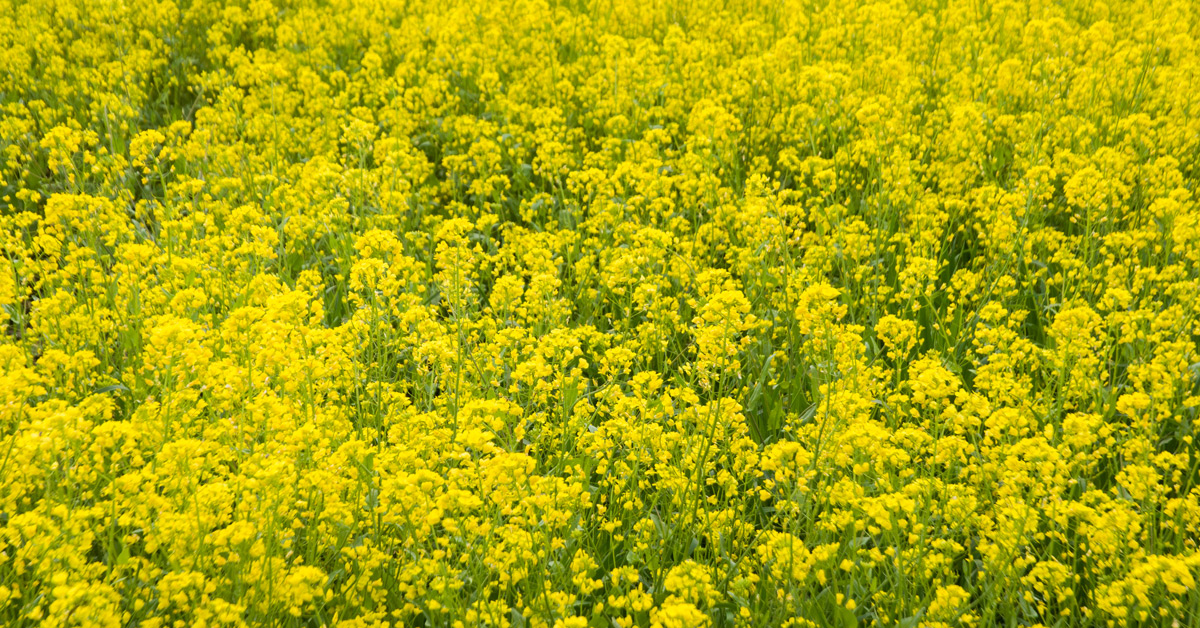
GEAC recommends "environmental release", says testing can be done afterwards
The Indian government's Genetic Engineering Appraisal Committee (GEAC) has recommended the environmental release of genetically modified mustard, which paves the way for its commercial cultivation.
The move comes amid opposition from green groups which say commercial cultivation of GM mustard could have an adverse impact on human health and food security. According to minutes of the October 18 meeting, the GEAC, the country's regulator for genetically modified organisms, recommended the "environmental release of mustard hybrid DMH-11 for its seed production and testing as per existing ICAR guidelines and other extant rules/regulations before commercial release".
GEAC added, "To generate scientific evidences in Indian agro-climatic situation and also as a precautionary mechanism, the field demonstration studies with respect to the effect of GE mustard on honey bees and other pollinators, as recommended in the 136th GEAC meeting, shall also be conducted post-environmental release, simultaneously by the applicant, within two years under the supervision of ICAR."
The transgenic mustard hybrid DMH-11 was developed by the Centre for Genetic Manipulation of Crop Plants (CGMCP) at Delhi University. The government has so far approved (in 2002) only one GM crop, Bt cotton, for commercial cultivation.
Those supporting commercial cultivation of GM crops say its benefits include greater food security due to increased yields. But Kavitha Kuruganti, the founder of the Alliance for Sustainable and Holistic Agriculture, said: "The claim that GM mustard will increase yield is not supported by the data submitted by the crop developers to the regulator."
Asked if the recommendation for "environmental release" means a go-ahead of commercial cultivation, she said: "It has been approved for commercial release. They (the GEAC) are saying any test needed can be conducted after the environmental release."
Kuruganti, a member of the Coalition for GM-free India, said environment minister Bhupender Yadav had earlier voiced his views against GM crops. "It is the regulator which has given a green signal. The minister should not approve it," she said.
In a statement issued on Wednesday, the Coalition for a GM-Free India said: "This compromises biosafety in serious and objectionable ways, and we ask the government not to move forward in allowing this dangerous herbicide tolerant food crop in India."
The coalition had recently written to Yadav that "GM mustard uses the pretext of creating hybrid technology in a plant like mustard but in effect is a herbicide tolerant crop. The entire biosafety assessment of GM mustard so far has not taken this fact into account."
The coalition added, "Also ignored in the regulatory tests is the fact that a deadly herbicide like glufosinate will be used along with this GMO (there is adequate evidence of adverse impacts of this herbicide on health and environment for this to have raised warning bells for our regulators; this includes the emergence of "superweeds").
"This showcases a very serious deficiency in our regulatory regime," the letter dated October 20 read.
GM mustard is a herbicide tolerant and toxic hybrid that will dramatically increase the presence of toxic chemicals in our food and soil and hence impact health, said Rohin Kynar, Senior Agriculture Campaigner, Greenpeace India. "There also seem to be serious lapses on the safety assessment protocols adopted for GM mustard as highlighted by GM-free groups — there was no place for environmental risk assessment when the GM mustard application was processed," he said.










